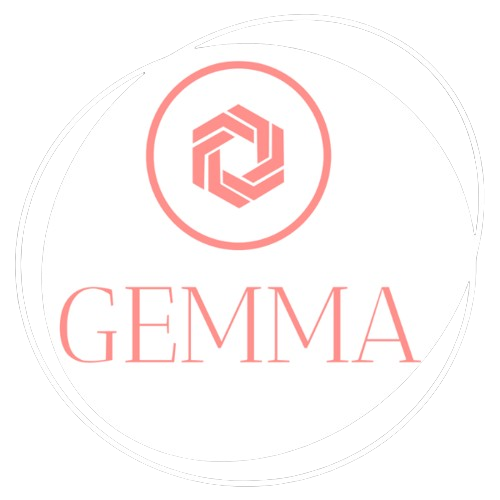WP5 – Guidelines and data results
⇒ Download the complete report
PARTNERS’ CONTRIBUTION
In Work Package 5, all project partners collaborated to collect data, validate results, and produce the final GEMMA Guidelines and Recommendations. Each organisation contributed according to its expertise to ensure that the evaluation process and outputs reflected the diversity of academic contexts across Europe.
All partners conducted pilot trials and usability tests in their respective countries (Italy, Spain, Greece, Finland, and Poland), gathering both quantitative and qualitative data from participants of the MOOC and the serious game. These data were essential to assess the project’s pedagogical impact and user experience.
The universities were responsible for data collection, analysis, and interpretation, while partners with methodological and technical expertise supported the evaluation design and reporting. Together, the consortium co-authored the final Guidelines and Recommendations, which summarise the validated GEMMA model and propose strategies for transferability and upscaling in higher education.
Finally, all partners took part in the final international conference, contributing to the dissemination and sustainability of results.
MAJOR DIFFERENCES WITH PLANNED ACTIVITIES
There were no major differences between the planned and implemented activities within Work Package 5. All actions foreseen in the original work plan—such as the organisation of pilot trials and usability tests in partner countries, the analysis of collected data, the drafting of the final Guidelines and Recommendations, and the organisation of the final international conference—were completed as planned.
The planned results of Work Package 5 at the application stage included:
The validation of the GEMMA integrated model, combining DigiComp, EntreComp, and LifeComp frameworks to support digital, entrepreneurial, and well-being competences in higher education.
The collection and analysis of quantitative and qualitative data from pilot trials and usability tests conducted in all partner countries (Italy, Spain, Greece, Finland, and Poland).
The production of the final Guidelines and Recommendations, summarising lessons learned, best practices, and strategies for transferring and scaling up the GEMMA model within and beyond the consortium institutions.
The organisation of a final international conference, aimed at presenting project results, promoting dissemination, and fostering dialogue among stakeholders in higher education.
These results were intended to ensure the project’s long-term sustainability and to provide a validated, evidence-based framework for future training and policy development in the field of digital innovation and well-being in academia.
QUALITY OF RESULT
The results of Work Package 5 were achieved through a systematic evaluation and validation process carried out collaboratively by all project partners. Partners conducted pilot trials and usability tests in five countries—Italy, Spain, Greece, Finland, and Poland—to collect both quantitative and qualitative data from MOOC and serious game participants.
These results directly supported the overall objectives of the GEMMA project, confirming the effectiveness of the integrated model that combines DigiComp, EntreComp, and LifeComp frameworks. The collected data demonstrated improvements in participants’ digital competences, entrepreneurial attitudes, and awareness of well-being at work, thereby validating the pedagogical relevance of the GEMMA approach.
The quality of the results was ensured through consistent data monitoring, cross-country comparison, and triangulation of findings. Additionally, the user satisfaction survey conducted via Google Forms confirmed high levels of engagement, usability, and perceived learning outcomes.
TARGET GROUP
The target groups for the activities and results of Work Package 5 were university staff, researchers, PhD candidates, and students who participated in the GEMMA MOOC and serious game.
For academic staff and researchers, the data collected through trials provided insights into their digital, entrepreneurial, and well-being competences, helping them reflect on professional growth and adopt new strategies for work-life balance and innovation. PhD candidates and students benefited from feedback opportunities and from the possibility to strengthen transversal skills through the validated training model.
The Guidelines and Recommendations were particularly beneficial for universities and decision-makers, offering evidence-based strategies to integrate GEMMA’s approach into institutional training and staff development programmes.
Overall, the outcomes of WP5 provided all target groups with validated tools, data, and recommendations to improve teaching, learning, and well-being in higher education, thus ensuring the sustainability and scalability of the project’s impact.
PROGRESS, QUALITY AND ACHIEVEMENT OF RESULTS
The level of achievement of both qualitative and quantitative indicators in Work Package 5 was fully satisfactory. All planned activities—pilot trials, usability tests, data analysis, drafting of the final Guidelines and Recommendations, and the international conference—were completed as foreseen.
Quantitative indicators included the number of pilot participants, datasets collected, and dissemination activities carried out. These targets were all achieved, with participation levels meeting or exceeding expectations in several partner countries.
Qualitative indicators focused on user satisfaction, learning impact, and transferability of the GEMMA model. These were assessed through participant surveys conducted via Google Forms, qualitative feedback from focus groups, and cross-country analysis of results. The data confirmed the strong pedagogical quality, usability, and relevance of the GEMMA tools.
Progress and quality were monitored continuously through coordination meetings, shared evaluation templates, and joint reporting among partners.
CONCLUSION
The implementation of Work Package 5 was highly satisfactory. All planned activities—data collection, pilot trials, analysis, and the production of the final Guidelines and Recommendations—were completed on time and with strong collaboration among partners. The results effectively validated the GEMMA model and provided clear evidence of its impact and transferability within higher education.
The small reduction from a perfect score reflects the effort required to harmonise data from different countries and ensure consistency in reporting formats. Nevertheless, the quality of the outcomes, the success of the final international conference, and the positive feedback from participants confirm the excellence and relevance of WP5’s implementation.
